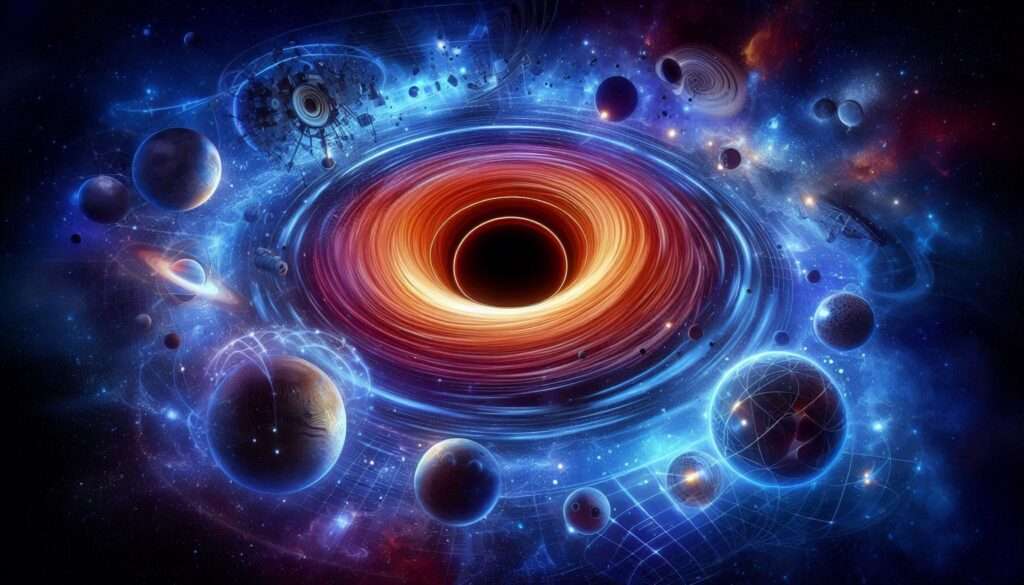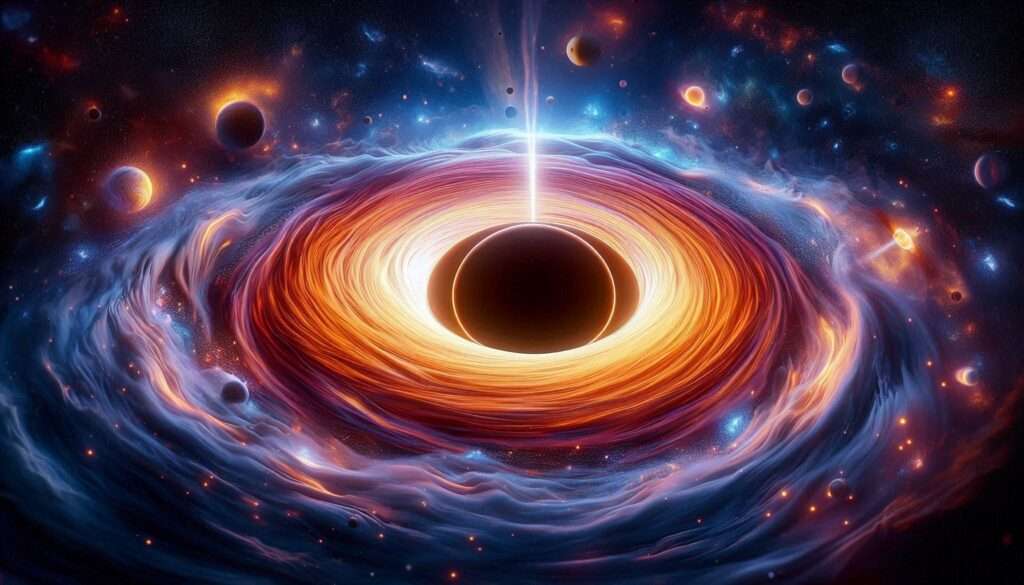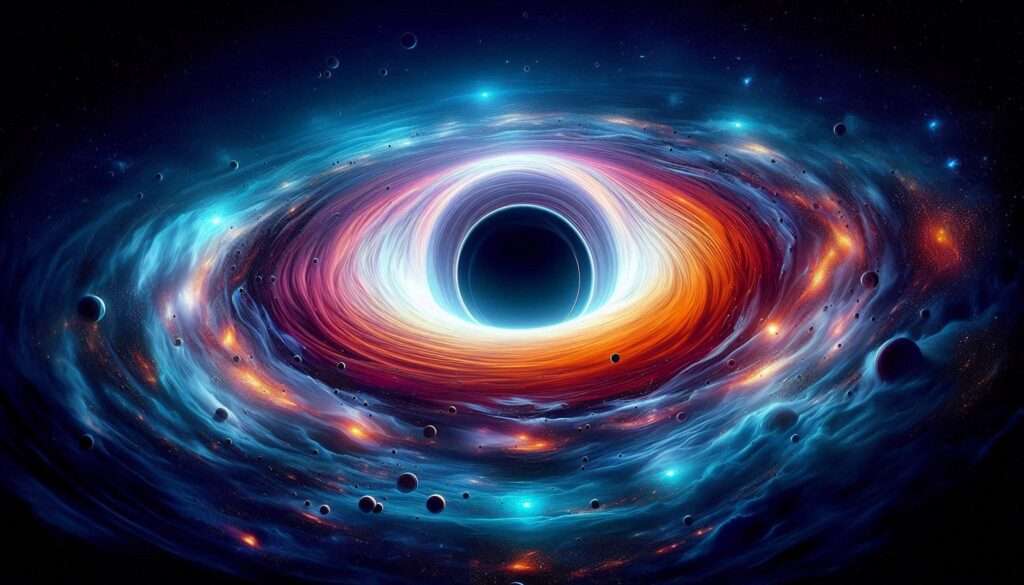Introduction to Black Holes and Cosmic Mysteries
The universe is a vast and enigmatic place, filled with phenomena that challenge our understanding of the laws of physics. Among the most fascinating and perplexing are black holes and other cosmic mysteries. These celestial objects not only captivate the imagination but also push the boundaries of scientific knowledge. In this article, we delve into the top physics insights that shed light on black holes and other cosmic wonders.

Understanding Black Holes: The Basics
What Are Black Holes?
Black holes are regions of spacetime where gravity is so intense that nothing, not even light, can escape from them. These extraordinary objects are formed when massive stars undergo gravitational collapse at the end of their life cycles. The result is a singularity, a point of infinite density, surrounded by an event horizon—the boundary beyond which nothing can return.
Types of Black Holes
- Stellar Black Holes: Formed from the remnants of massive stars, these black holes typically have a mass ranging from a few to several tens of solar masses.
- Supermassive Black Holes: Found at the centers of galaxies, these behemoths can have masses ranging from millions to billions of times that of our Sun.
- Intermediate Black Holes: These elusive objects are thought to bridge the gap between stellar and supermassive black holes, though their existence is still a topic of ongoing research.
- Primordial Black Holes: Hypothetical black holes that could have formed in the early universe, potentially offering insights into the nature of dark matter.
Recent Physics Insights into Black Holes

The Contribution of Quantum Mechanics to the Study of Black Holes
Quantum mechanics and general relativity, the two pillars of modern physics, clash when it comes to black holes. Recent research has focused on understanding how quantum effects could influence black hole behavior, particularly near the event horizon.
Hawking Radiation
One of the most profound insights into black holes comes from Stephen Hawking’s theory of Hawking radiation. According to this theory, black holes can emit radiation due to quantum effects near the event horizon, leading to a gradual loss of mass over time. This discovery suggests that black holes are not entirely black but can slowly evaporate, challenging our understanding of their ultimate fate.
Black Holes and Information Paradox
The black hole information paradox is a puzzle that has stumped physicists for decades. It arises from the apparent conflict between the principles of quantum mechanics and the nature of black holes. Recent advances in string theory and the concept of holography suggest that information may be preserved in some form, even as it is seemingly lost within a black hole. This area of research remains one of the most active and intriguing in theoretical physics.
Gravitational Waves: A New Window into Black Holes
The detection of gravitational waves in 2015 by LIGO (Laser Interferometer Gravitational-Wave Observatory) marked a new era in astrophysics. These ripples in spacetime, caused by the merger of black holes, provide a unique way to observe and study black holes. Gravitational wave astronomy has already led to the discovery of black hole collisions and promises to reveal much more about these mysterious objects.
Cosmic Mysteries Beyond Black Holes

Dark Matter and Dark Energy
While black holes are enigmatic, they are not the only cosmic mysteries that perplex physicists. Dark matter and dark energy, which make up about 95% of the universe, remain largely unknown. Understanding these substances is crucial to solving the puzzle of the universe’s structure and fate.
The Nature of the Big Bang
The origin of the universe is another profound mystery. The Big Bang theory, which describes the universe’s expansion from a hot, dense state, leaves many questions unanswered. What caused the Big Bang? What existed before it? These questions continue to drive research in cosmology, with black holes potentially offering clues to the answers.
Future Directions in Black Hole and Cosmic Research
Exploring the Event Horizon
The Event Horizon Telescope (EHT) provided the first-ever image of a black hole’s event horizon in 2019, a groundbreaking achievement in observational astronomy. Future advancements in telescope technology and international collaboration promise even more detailed images, which could help verify theories about black hole behavior and structure.
Unifying General Relativity and Quantum Mechanics
One of the biggest challenges in modern physics is unifying general relativity with quantum mechanics into a single theory of quantum gravity. Black holes, with their extreme conditions, are a natural laboratory for testing such theories. Breakthroughs in this area could revolutionize our understanding of the universe.

Conclusion: The Ongoing Quest to Understand the Universe
Black holes and cosmic mysteries continue to captivate both scientists and the public. As we gain more insights into these phenomena, we move closer to answering some of the most profound questions about the universe. The future of black hole research and cosmology promises to be as exciting as the mysteries themselves, with each discovery bringing us one step closer to understanding the cosmos.
Please Stay Connect with us at SkillSphare.com

Thomas Grey, a veterinary medicine student with a diverse educational background, brings a distinctive perspective to sports writing. Covering sports and analysis for SkillSphare, he delivers engaging content driven by his deep passion for athletics and keen understanding of the field.


